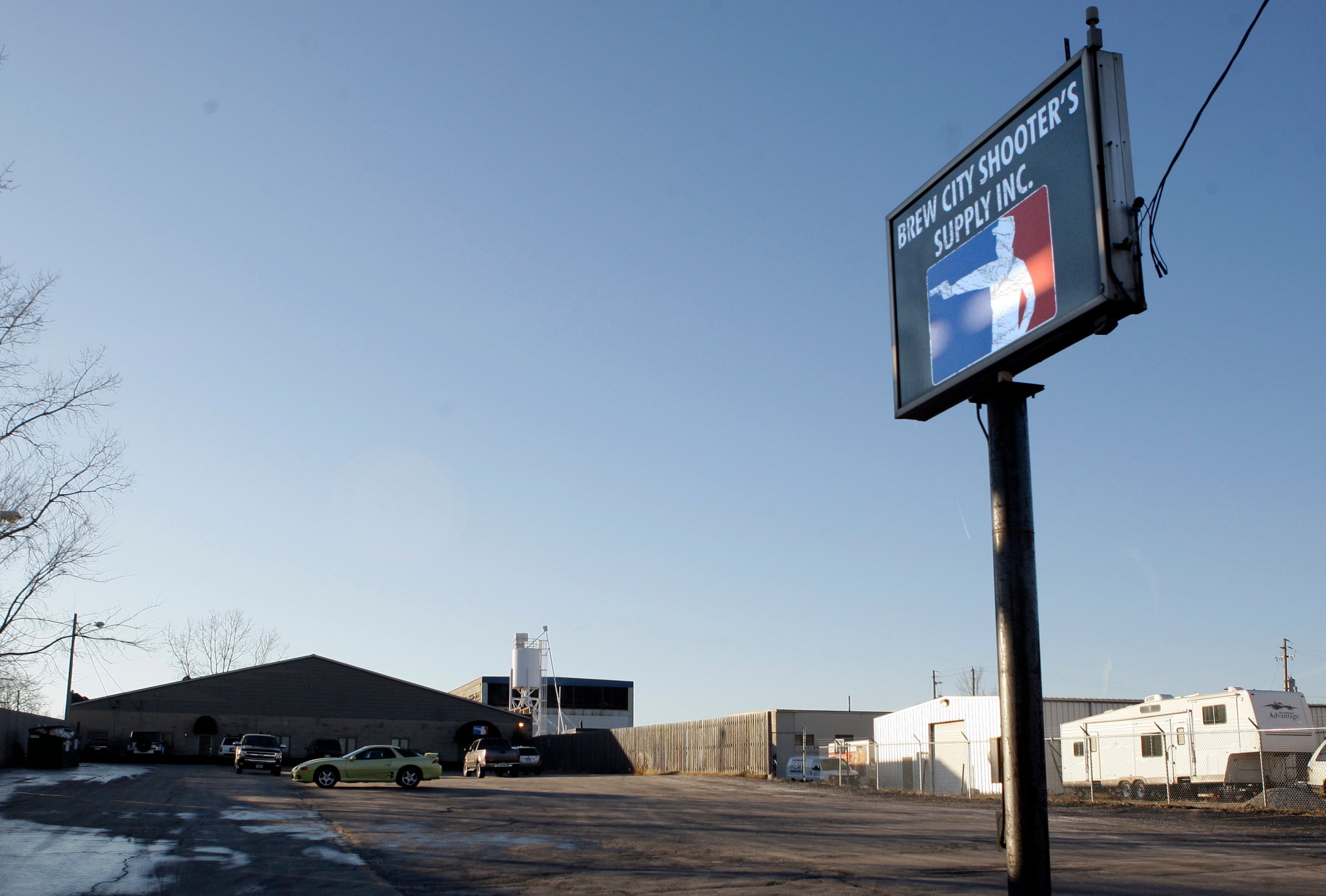
The jury decision finding a Wisconsin gun seller liable for selling a firearm that was used to shoot two police officers is a rare legal victory for gun control advocates that could open a new front in the nation’s contentious fight over the right to bear arms.
A jury on Tuesday held that Badger Guns, a Milwaukee firearms seller, was liable for the wounding of two Milwaukee police officers in 2009 after it sold a gun to a straw purchaser, who bought the weapon on behalf of someone else. The gun was purchased by 21-year-old Jacob Collins and given to 18-year-old Julius Burton, who was too young to buy a firearm. One month later, Burton shot and wounded officers Bryan Norberg and Graham Kunisch. Burton is now serving 80 years in prison while Collins spent two years behind bars.
Until recently, few cases have held gun dealers responsible for selling a firearm linked to a crime. Only two have reached a jury since 2005, when Congress passed the Protection for Lawful Commerce in Arms Act (PLCAA), which provides broad immunity for gun sellers and was strongly supported by the National Rifle Association. Earlier this summer, a similar lawsuit found that an Alaska gun seller was not liable for a firearm it had sold that was later used in a 2006 murder.
But about 10 other lawsuits are currently in the works, including another suit against Badger Guns brought by two other Milwaukee officers who were shot with guns bought from the store, says Jonathan Lowy, the director of legal action at the Brady Center to Prevent Gun Violence. And the Milwaukee ruling could open the door for even more.
“Litigation is one of the most promising avenues to save lives,” Lowy said. “Any victory that’s achieved in court is going to inspire and help the movement to prevent gun violence, and this latest victory is certainly a very important one.”
The Brady Campaign has filed suits in Indiana, New York, Pennsylvania and Florida in cases involving straw purchases. The suits come at a time of increased attention on the federal law that grants gun sellers broad protections from liability. Since the mass shooting at Umpqua Community College on Oct. 1 that left 10 dead, Hillary Clinton has said she would work to repeal PLCAA if elected president.
“Does this lawsuit immediately make it easy to sue a gun dealer?” said Adam Skaggs, senior counsel for Everytown for Gun Safety, a gun control advocacy group. “No. But I think it’s focused people’s attention on this federal immunity law. And we’ll continue to see lawsuits because it’s not an uncommon occurrence that these sorts of sales occur within a small percentage of rogue gun dealers that don’t follow the law.”
The tactic will face another significant test in an upcoming case in Missouri. The Brady Center is suing a Missouri pawn shop that sold a gun to Colby Sue Weathers, who shot and killed her father after her mother called the store and asked it not to sell her daughter a firearm. Weathers had been diagnosed with paranoid schizophrenia and previously purchased a gun with the intent to commit suicide. The Brady Center argues that the store was negligent in selling Weathers the firearm and is liable in her father’s death. The case will likely be heard in front of the Supreme Court of Missouri in early 2016.
Due to the federal protections provided by the PLCAA, it can be difficult to prove the negligence of gun sellers. Plaintiffs have to prove that dealers knowingly sold a firearm to someone who is barred from owning a gun. In Alaska, plaintiffs were unable to show that Ray Coxe, a local gun dealer, knowingly sold a gun illegally to Jason Coday, who in 2006 placed $200 on a counter at Coxe’s gun store and left with a rifle. Coday, who would have failed a background check, later killed 26-year-old Simone Kim with the firearm, but Coxe wasn’t considered liable for his death.
More Must-Reads from TIME
- Donald Trump Is TIME's 2024 Person of the Year
- Why We Chose Trump as Person of the Year
- Is Intermittent Fasting Good or Bad for You?
- The 100 Must-Read Books of 2024
- The 20 Best Christmas TV Episodes
- Column: If Optimism Feels Ridiculous Now, Try Hope
- The Future of Climate Action Is Trade Policy
- Merle Bombardieri Is Helping People Make the Baby Decision
Contact us at letters@time.com